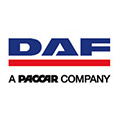09_18 Another revolution in transfer pricing regulations
In line with previous announcements, the Ministry of Finance published a proposed amendment to transfer pricing regulations in mid-July. The two primary goals of the new regulations are to reduce the bureaucratic and administrative burden for taxpayers and to tighten the tax system, in particular with respect to income tax.
The amendment will introduce new sections to the Personal Income Tax Act and the Corporate Income Tax Act, which will regulate transfer pricing issues in a more comprehensive manner.
The proposed amendments involve explicit specification of the tax authorities’ rights in the determination of the income or loss amount in controlled transactions, including the right to conclude that in the given circumstances unrelated parties: (i) would not have performed a given transaction, or (ii) would have performed a different transaction or a different activity. It should be noted, however, that the regulation in question does not specify the detailed conditions of exercising the right to reclassify or refuse to recognize a transaction, as is the case with the anti-tax avoidance clause regulated in the Tax Ordinance Act. The relations between these instruments have not been clarified, either.
Furthermore, the proposed amendment provides for introducing safe harbours for low value-added services and facilitations for certain loans. In the case of such transactions, the tax authority will refrain from determining the mark-up or interest rate provided that relevant conditions are met. In addition, the taxpayer will not be obliged to prepare benchmark analyses for such transactions.
According to the proposal, the simplification of documentation requirements will also involve raising the transaction amount threshold that obliges the taxpayer to prepare transfer pricing documentation. The proposed amendment provides for specific threshold amounts, whose level depends on the transaction category. Additionally, pursuant to the proposed amendment, the obligation to prepare the transfer pricing documentation will no longer arise upon the taxpayer’s exceeding a specific amount of revenues or expenses in the previous fiscal year, but upon exceeding a controlled transaction value threshold indicated in the act. At the same time, it will be necessary to prepare a benchmark analysis for all transactions exceeding the transaction value thresholds (except for low value-added services and loans meeting certain conditions).
The draft act also regulates the issue of making transfer pricing adjustment, which is a common practice today. Until now, in the income tax context, there have been many doubts concerning the moment of recognizing such adjustments and whether they need to be disclosed at all in tax settlements (particularly in the case of adjustments increasing expenses or decreasing revenues). According to a new rule, which should apply from 2019, a transfer pricing adjustment constitutes a revenue or a tax deductible expense and is recognized in the year to which it pertains, provided that certain conditions are met. These conditions could pose additional difficulties in practice, as taxpayers will be obliged, among other things, to prove that there has been a change in material circumstances affecting the transaction terms and justifying the adjustment.
Apart from the Local File, the amendments will also affect the Master File. According to the proposal, as of the next year the obligation to prepare the Master File will apply to taxpayers that are members of corporate groups which prepare consolidated financial statements and whose consolidated revenues exceed PLN 200 million. The regulations will also specify explicitly that the Master File may be prepared in English by another member of the group. Furthermore, pursuant to the new regulations, entities filing the CbC report in Poland will be obliged to submit the Master File to the Head of the National Revenue Administration (KAS).
The new regulations will also permanently extend the deadlines for preparing individual components of the transfer pricing documentation. The Local File preparation statement will have to be filed by taxpayers by the end of the ninth month after the end of the fiscal year, while the deadline for preparing or obtaining the Master File will be the end of the twelfth month after the end of the fiscal year.
The amendment to the transfer pricing regulations also replaces the CIT/TP and PIT/TP forms, which were introduced in 2017, with a new transfer pricing information form – TP-R. Taxpayers obliged to prepare the Local File will have to file TP-R forms electronically, directly to the Head of KAS.
To sum up, 2019 will bring another substantial set of changes in the transfer pricing regulations. For the time being, however, it is difficult to evaluate how they will affect taxpayers. While the proposal to extend deadlines for documentation preparation or to change the transaction materiality thresholds should be assessed positively, the new regulations may impose additional workload on many taxpayers, e.g. with respect to making profitability adjustments or preparing benchmark analyses.
The amendments to the transfer pricing regulations may also significantly affect entities from the automotive industry, due to the complexity of their operations and the large number of intercompany transactions. Consequently, these entities should closely monitor the legislative changes to start preparing for their implementation with due advance.
Generally, the new regulations are to apply as of 2019, but the proposed amendment provides for the possibility of applying them, on a voluntary basis, to transactions initiated after 31 December 2017.
The draft act has been submitted for public consultation.
MichałZwyrtek
Director at PwC’s Legal and Tax Department
Joanna Melcher
Senior Consultant at PwC’s Legal and Tax Department
KatarzynaWitek
Consultant at PwC’s Legal and Tax Department
























































